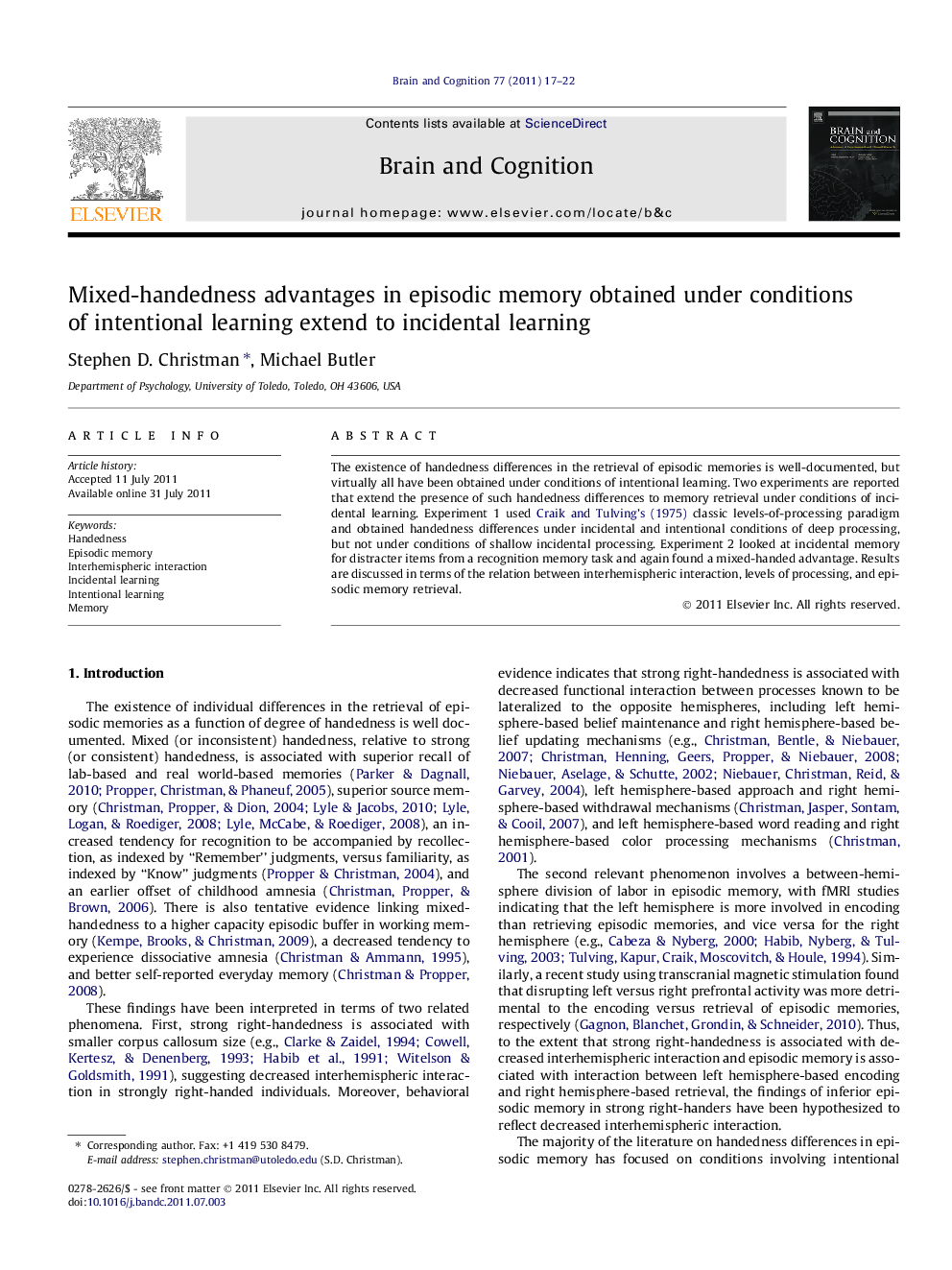| Article ID | Journal | Published Year | Pages | File Type |
|---|---|---|---|---|
| 924732 | Brain and Cognition | 2011 | 6 Pages |
The existence of handedness differences in the retrieval of episodic memories is well-documented, but virtually all have been obtained under conditions of intentional learning. Two experiments are reported that extend the presence of such handedness differences to memory retrieval under conditions of incidental learning. Experiment 1 used Craik and Tulving’s (1975) classic levels-of-processing paradigm and obtained handedness differences under incidental and intentional conditions of deep processing, but not under conditions of shallow incidental processing. Experiment 2 looked at incidental memory for distracter items from a recognition memory task and again found a mixed-handed advantage. Results are discussed in terms of the relation between interhemispheric interaction, levels of processing, and episodic memory retrieval.
► Prior research has demonstrated a mixed-handed advantage in intentional learning. ► The current studies investigate handedness differences in incidental learning. ► Mixed-handed advantage found for intentional and incidental deep processing. ► Mixed-handed advantage not found for incidental shallow levels of processing.
